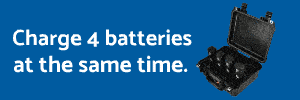Sorry, no one but the FCC can authorize you to transmit, regardless of the frequency. The airport doesn't "own" the unicom freq, it is just the published frequency that planes in the area (e.g. taking off or landing, entering the pattern, etc.) use to notify others of their presence and intentions. Particularly useful for airports that aren't manned full time. FYI, I'm a licensed pilot (still have my original radiotelephone license) and have had my ham ticket for almost 40 years. still have to play by the FCC rules.Let me clarify my original question:
I live near a small airport without a control tower. I believe the airport is staffed during the daytime. When I was a student pilot I would call in on UNICOM. Sometimes I would get a response from the airport but many times no response.
My recent research seems to say that the airport has exclusive use of the UNICOM Frequency and that the airport can give permission to use handheld radios on the frequency and if so I would not need a license because I would be using their license.
Does this make any sense?
Sent from my iPad using PhantomPilots
You are using an out of date browser. It may not display this or other websites correctly.
You should upgrade or use an alternative browser.
You should upgrade or use an alternative browser.
Notify Airport / Tower with a radio.
- Thread starter MTNestr
- Start date
I'm not arguing with you but Explain this:
A UNICOM STATION LICENSE gives exclusive authority to the airport or the airport's designee over the use of the specified unicom frequency.
Sent from my iPad using PhantomPilots
A UNICOM STATION LICENSE gives exclusive authority to the airport or the airport's designee over the use of the specified unicom frequency.
Sent from my iPad using PhantomPilots
Quote "Others may transmit on the unicom frequency, but they do so at the discretion of the Unicom licensee"
Sent from my iPad using PhantomPilots
Sent from my iPad using PhantomPilots
I stand corrected.Quote "Others may transmit on the unicom frequency, but they do so at the discretion of the Unicom licensee"
Sent from my iPad using PhantomPilots
I'm not aware of a specific regulation on it but I personally opt for the phone before I'd use my handheld. If I were going to use radio communication, keep it short, sweet and to the point and preferably at a time when there's not a lot of frequency congestion. On your initial call-up if it's busy, use "Tower, [callsign], with request" and WAIT for them to respond to you and ask what your request is. Be courteous - it goes a long way with controllers and will reflect more positively on our community. Best of luck.
Technically once the ATC facility responds with your callsign you have "established two-way radio communications". For manned aircraft this is sufficient to enter Class D or C however I would not interpret it this way for Part 107 unmanned operations since you're supposed to have "permission of the controlling agency" (a higher standard).
Technically once the ATC facility responds with your callsign you have "established two-way radio communications". For manned aircraft this is sufficient to enter Class D or C however I would not interpret it this way for Part 107 unmanned operations since you're supposed to have "permission of the controlling agency" (a higher standard).
Last edited:
Aren't UASs issued a callsign when they're registered? Why can't you just use that to call up the tower with your request?
FAA regulates airspace for aircraft.
FCC regulates the RF frequency spectrum.
I've got FCC issued ham and commercial licenses which both required tests be taken and neither of which permit me to transmit on air frequencies. To use an air comm radio all I need is a permit. I'm not sure what the process is now but when I got mine it was literally filling out a card.
Hey, look what I just found: https://transition.fcc.gov/Forms/Form605/605main.pdf
The Yaesu radio also receives nav frequencies and displays VOR radials for those who also fly airplanes and want to use it for backup nav.
Last edited:
To use an air comm radio all I need is a permit.
Actually, the FCC does NOT require a pilot to have a radio permit to operate a radio in an aircraft in the air. However, you are required to have an FCC permit to operate on the ground.
The FCC seems to think that you need a permit to operate a radio which is part of a UAS while on the ground:
Notify Airport / Tower with a radio.
Will the old FCC restricted radiotelephone license we used to have to have to use aircraft radio work for a drone pilot to use on the ground?Actually, the FCC does NOT require a pilot to have a radio permit to operate a radio in an aircraft in the air. However, you are required to have an FCC permit to operate on the ground.
The FCC seems to think that you need a permit to operate a radio which is part of a UAS while on the ground:
Notify Airport / Tower with a radio.
IDK, but I'm guessing not. Reading the FCC's website it appears to be a different license.Will the old FCC restricted radiotelephone license we used to have to have to use aircraft radio work for a drone pilot to use on the ground?
Or, if you want to learn something in the process the GROL (General Class Radio Operator License) will also be valid to ground-operate on air frequencies. Sample question pool is here: (elements 1 and 3) Commercial Radio Operator License Program: Who Needs a License: Exam Question Pools
Except that it is not part of your UAS. It maybe among the equipment that you take with you when you fly, but it is not physically attached.Actually, the FCC does NOT require a pilot to have a radio permit to operate a radio in an aircraft in the air. However, you are required to have an FCC permit to operate on the ground.
The FCC seems to think that you need a permit to operate a radio which is part of a UAS while on the ground:
Notify Airport / Tower with a radio.
- Joined
- Apr 11, 2017
- Messages
- 21
- Reaction score
- 10
Just wanted to jump in here and mention that nothing in the FAA rules require notification, or a flight plan, before each and every flight within the 5 mile range. Rather, the rule (which itself isn't actually a rule - its a restriction on FAA rulemaking), says:
"When flown within 5 miles of an airport, the operator of the model aircraft provides the airport operator and the airport air traffic control tower (when an air traffic facility is located at the airport) with prior notice of the operation."
Although I'm not an expert (and may be wrong), my reading of "the operation" of which you must give "prior notice" is the fact that will fly "within 5 miles of an airport" at some time in the future. Nothing in the rule requires notice for every flight, or a certain amount of time in advance of the flight. The FAA certainly knows how to write a rule that requires such things, and has presumably done so in rules that require flight plans and the like for manned flights. So, it should be sufficient to send a letter to the airport and ATC that simply says "I fly model aircraft for recreational purposes. On an itinerant basis in the future, I will be flying within 5 miles of the airport. I'm giving you notice per AC 91-57A. If you have any questions, please call me at (number)."
If the airport or ATC requests additional advance notices, I think you should give that as a courtesy. Also, if you're seeking to fly in airspace outside of Class-G airspace (which you'll find a lot of near airports), you may well be required to obtain ATC permission. However, there's a lot of class-G airspace within 5 miles of airports, especially small ones. Also, I'm finding that many airports are nothing more than gravel paths on a ranchers property that haven't been used in the 10 years since Grandpa died. Some have told me that they don't want any notices. Others don't answer the phone. At least one was disconnected.
Going back to "the rule," the only rule that I can find governing UAS is 14 C.F.R. 101.41-101.43. All that is says is that you cannot fly your UAS in such a way that endangers the national airspace.
With respect to the FCC licensing requirements, it would seem that the every aircraft station is automatically licensed ("licensed by rule") to operate an airband radio unless they are flying in an aircraft that is legally required to carry a radio AND they are making flights internationally. See 47 C.F.R. 87.18(b) and this...
http://wireless.fcc.gov/releases/fcc96421.pdf
I know that some others have suggested that since you're not in an airplane, you're a "ground station," but the FCC generally thinks of ground stations as "fixed" operations, like the radios in a control tower and the like. Here's a list of authorized "ground stations":
FCC: Wireless Services: Ground Stations: Services: About
Given that, I'm not sure that you could even get a license as a ground station.
Because you're controlling an aircraft and communicating with ATC in your capacity as an aircraft, I'd argue that you are constructively "on-board" an aircraft and operating according to the license by rule - particularly if ATC has instructed you to contact them using the radio.
I also think that this is going to fall into the category of "who gives a s**t." The FCC isn't likely to even know or care about this kind of usage as long as ATC has asked you to contact them by radio. If they tell you NOT to contact them by radio and you keep doing so, this will be one of a long list of violations that they'll use to fine you..
"When flown within 5 miles of an airport, the operator of the model aircraft provides the airport operator and the airport air traffic control tower (when an air traffic facility is located at the airport) with prior notice of the operation."
Although I'm not an expert (and may be wrong), my reading of "the operation" of which you must give "prior notice" is the fact that will fly "within 5 miles of an airport" at some time in the future. Nothing in the rule requires notice for every flight, or a certain amount of time in advance of the flight. The FAA certainly knows how to write a rule that requires such things, and has presumably done so in rules that require flight plans and the like for manned flights. So, it should be sufficient to send a letter to the airport and ATC that simply says "I fly model aircraft for recreational purposes. On an itinerant basis in the future, I will be flying within 5 miles of the airport. I'm giving you notice per AC 91-57A. If you have any questions, please call me at (number)."
If the airport or ATC requests additional advance notices, I think you should give that as a courtesy. Also, if you're seeking to fly in airspace outside of Class-G airspace (which you'll find a lot of near airports), you may well be required to obtain ATC permission. However, there's a lot of class-G airspace within 5 miles of airports, especially small ones. Also, I'm finding that many airports are nothing more than gravel paths on a ranchers property that haven't been used in the 10 years since Grandpa died. Some have told me that they don't want any notices. Others don't answer the phone. At least one was disconnected.
Going back to "the rule," the only rule that I can find governing UAS is 14 C.F.R. 101.41-101.43. All that is says is that you cannot fly your UAS in such a way that endangers the national airspace.
With respect to the FCC licensing requirements, it would seem that the every aircraft station is automatically licensed ("licensed by rule") to operate an airband radio unless they are flying in an aircraft that is legally required to carry a radio AND they are making flights internationally. See 47 C.F.R. 87.18(b) and this...
http://wireless.fcc.gov/releases/fcc96421.pdf
I know that some others have suggested that since you're not in an airplane, you're a "ground station," but the FCC generally thinks of ground stations as "fixed" operations, like the radios in a control tower and the like. Here's a list of authorized "ground stations":
FCC: Wireless Services: Ground Stations: Services: About
Given that, I'm not sure that you could even get a license as a ground station.
Because you're controlling an aircraft and communicating with ATC in your capacity as an aircraft, I'd argue that you are constructively "on-board" an aircraft and operating according to the license by rule - particularly if ATC has instructed you to contact them using the radio.
I also think that this is going to fall into the category of "who gives a s**t." The FCC isn't likely to even know or care about this kind of usage as long as ATC has asked you to contact them by radio. If they tell you NOT to contact them by radio and you keep doing so, this will be one of a long list of violations that they'll use to fine you..
Last edited:
- Joined
- Mar 8, 2017
- Messages
- 20
- Reaction score
- 5
- Age
- 48
PLEASE don't do this....seriously please. Drone pilots on the radio is a terrible idea. It will do nothing but clog already busy freqs with wanna-be pilots that have zero idea or training about how to use the radio. Its bad enough listening to some student pilots that have an instructor sitting right next to them, I can't imagine how painful this will be. I can maybe understand the FAA telling remote pilots, who are also manned pilots to do this...maybe. But if they are telling Remote Pilot only holders to do this, it wont last long......Use the phone!
- Joined
- Apr 11, 2017
- Messages
- 21
- Reaction score
- 10
Remote Pilot license holders are instructed to request all permissions using a web-site, so that won't happen.
My comments were in the context of an ATC tower that specifically requires communications via radio. I doubt that this will happen very often (if ever), but if ATC asks you to do something, you should do it.
My comments were in the context of an ATC tower that specifically requires communications via radio. I doubt that this will happen very often (if ever), but if ATC asks you to do something, you should do it.
PLEASE don't do this....seriously please. Drone pilots on the radio is a terrible idea. It will do nothing but clog already busy freqs with wanna-be pilots that have zero idea or training about how to use the radio. Its bad enough listening to some student pilots that have an instructor sitting right next to them, I can't imagine how painful this will be. I can maybe understand the FAA telling remote pilots, who are also manned pilots to do this...maybe. But if they are telling Remote Pilot only holders to do this, it wont last long......Use the phone!
Similar threads
- Replies
- 2
- Views
- 772
- Replies
- 0
- Views
- 1K
- Replies
- 4
- Views
- 2K









